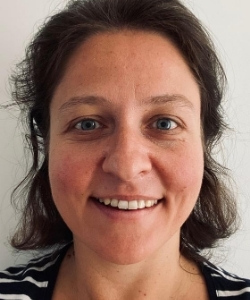 |
Ino AGRAFIOTI Ino Agrafioti has been working as a scientific officer at the European Research Council (ERC) Executive Agency. She is the LS1 (Molecules of Life: Biological Mechanisms, Structures and Functions) Panel coordinator, organising the evaluation of proposals submitted in STG, COG and ADG Calls, as well as the monitoring of the projects funded. She is a systems biologist (BA Biological Sciences, University of Oxford; MSc/PhD Theoretical Genomics, Imperial College London) who after a long journey decided that she prefers science policy instead. |
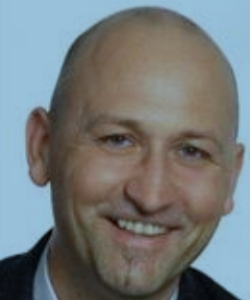 |
Oskar ASZMANN Oskar Aszmann is the Director of the Laboratory for Restoration of Extremity Function; Division of Plastic Surgery, Department of Surgery at the Medical University of Vienna. He is internationally recognised for innovation in surgical procedures of nerve and bionic reconstruction. He has led previous pioneering bionic projects on elective amputation, bionic substitution, free muscle transplant/reinnervation, and chronic implantable technology. He has envisioned, developed and successfully implemented the idea of bionic reconstruction – a synergistic neuro-technological approach in the restoration of extremity function, which resulted in a paradigm shift in clinical applications of prosthetic technologies. To purse this ambitious goal, he was recently awarded the ERC Synergy grant NaturalBionicS together with Dario Farina and Antonio Bicchi. |
 © Studio Brega
© Studio Brega
|
Antonio BICCHI Antonio Bicchi is Adjunct Professor at Arizona State University, Professor at Pisa University and Senior Scientist at the Italian Institute of Technology. He is known world-wide for his pioneering concepts in robotics, such as soft synergies for robotic hands developed in his ERC Advanced and Proof-of-Concept grants SoftHands and SoftHand-Pro-H. He was recently awarded the ERC Synergy grant NaturalBionicS together with Dario Farina and Oskar Aszmann, in which his expertise will be essential towards the realisation of a new generation of prosthetics. |
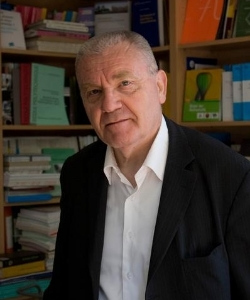 © Jean-François DARS
© Jean-François DARS
|
Jean-Pierre BOURGUIGNON Jean-Pierre Bourguignon is President ad interim of the European Research Council from 27 July 2020 until the next ERC President is selected and takes up duties. Previously he was the President of the ERC from January 2014 until December 2019. Until 2013 he was the director of the Institut des Hautes Études Scientifiques (IHES) in Paris. A mathematician by training, he spent his whole career as a fellow of the Centre National de la Recherche Scientifique. From 1990 to 1992, he was President of the Société Mathématique de France and President of the European Mathematical Society from 1995 to 1998. |
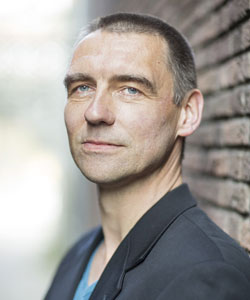 |
Jan BROERSEN Jan Broersen is professor of logical methods in artificial intelligence at the Department of Philosophy and Religious Studies at Utrecht University. Before moving to theoretical philosophy he worked in computer science (intelligent systems). His doctoral thesis was on modal logics for normative system verification. He studied mathematics at the Delft University of Technology. His main research interests are in logics for agency and norms and in the philosophy of AI. In 2013 he was awarded an ERC project on the topic of Responsible Intelligent Systems (REINS). The project investigates how to endow AIs with a sense of responsibility, and how to actually verify if an AI has behaved or will behave responsibly. A second project he is involved in is the NWO project “The Digital Turn in Epistemology”, that aims at new epistemological theories and learning methods applying to (mathematical) knowledge that is embedded, embodied and extended through our modern day interactions with digital (mathematical) tools. A third project, "Empowering Human Intentions through AI" wil start under his supervision in 2021. |
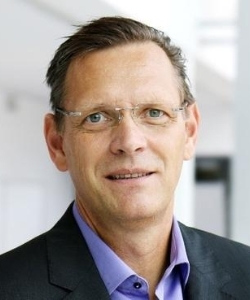 |
Frank BUCHHOLZ Frank Buchholz is full Professor for medical systems biology at the University Cancer Centre of the TU Dresden, Germany. He is widely known for his development of the esiRNA technology as an efficient and specific RNAi screening tool, allowing discovery of many new genes. His group has recently extended functional profiling via RNAi and CRISPR-Cas9 technology to primary cells. Frank Buchholz is studying designer recombinases for efficient and safe genome surgery, funded by an ERC Advanced Grant. |
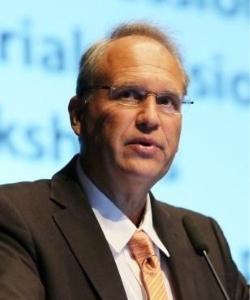 |
Carlos CANUDAS-DE -WIT Carlos Canudas-de-Wit was born in Villahermosa, Tabasco, Mexico. He holds a B.Sc. from ITESM, Mexico and a M.Sc. from the Department of Automatic Control, Grenoble, France. He was a visitor researcher in 1985 at Lund Institute of Technology, Sweden. He obtained a Ph.D. in automatic control from the Polytechnic of Grenoble, France. Since then he has been working at the same department as "Director of Research at the CNRS", where he teaches and conducts research in the area of control systems. He has been awarded an ERC Advanced-Grant 2015 Scale-FreeBack for the period 2016-2021. |
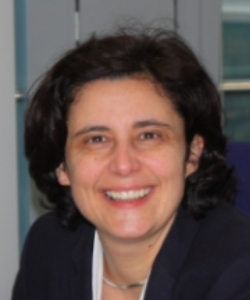 |
Telma CARVALHO Telma Carvalho is Research Programme Officer at the European Research Council Executive Agency being in charge of the coordination of the panel on Systems and Communication Engineering which focus on achieving significant advancements in photonics, micro- nanoelectronics, robotics and communication. She is a Materials Engineer by the Technical University of Lisbon and doctor in Engineering by the Catholic University of Leuven (KULeuven). Before joining the European Commission, she was R&D Manager at a spin-off company of the KULeuven charged of developing sensors and expert systems to assess the integrity of industrial components. |
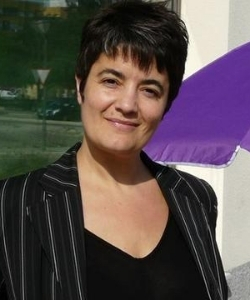 |
Carmen CASTRO Carmen Castro-García is specialized in gender mainstreaming and European gender-issue policy. She’s a PhD degree cum laude in economics and she researches on feminist economics at University of Valencia. She’s a feminist activist for more than thirty years, one of the co-promoters of the Platform for Equal and Non-Transferable Parental Leave (PPiiNA) -at spanish and european level - and also of the Observatory on Gender, Economics, Public Policy and Development (GEP & DO). In 2002 she created SinGENEROdeDUDAS.com, a community of knowledge on issues of gender, democracy and feminist economics. Great experience as consultant on gender mainstreaming; she’s the author of handbooks on gender-equality policies. Her profesisional and activism work was recognized by several institutionas, the most relevant ‘Les Corts de les Dones’ awarded by Valencian Parliament in 2019, the Equal Opportunities Award in 1997 from the Spanish Federation of Progressive Women; she was selected by the European Institute for Gender Equality (EIGE) as one of the “Women Inspiring Europe” in 2014 and by the UNDP Roster as Expert in Gender Equality and Women's Empowerment in Public Administration (GEPA) for 2014–17. Her latest publications are Políticas de igualdad. Permisos por nacimiento y transformación de los roles de género (2017) and Claves feministas para transiciones económicas (2020). |
 |
Valentina CAUDA Valentina Cauda is a Chemical Engineer. After obtaining her PhD in materials sciences in Italy, she worked at the University of Munich, Germany, collaborating with various groups specialising in biomedical research. She decided to return to Turin initially at the Italian Institute of Technology and now, with ERC funding for her project, at the Politecnico di Torino, where she leads a research team and is Associate Professor, co-founder of the Interdepartmental laboratory PolitoBIOMed Lab and head of the TrojaNanoHorse lab (TNHLab: https://areeweb.polito.it/TNHlab/). |
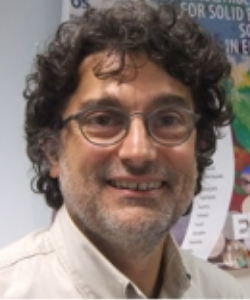 |
Massimo COCCO Massimo Cocco is a physicist and Director of Research at the Istituto Nazionale di Geofisica e Vulcanologia (INGV) in Italy. He has been the coordinator of the EPOS (European Plate Observing System), which is the ESFRI infrastructure aiming at the integration of research infrastructures for solid Earth Science (www.epos-eu.org). He has interests in all aspects of the mechanics of earthquake and faulting from observations of natural faults through geophysical and geological measurements to experimental faults at the laboratory scale. He has been granted the ERC Synergy grant FEAR (Fault Activation and Earthquake Rupture) aiming at integrating fault mechanics, seismology and numerical modeling across scales: from laboratory to deep underground experiments to natural earthquakes. |
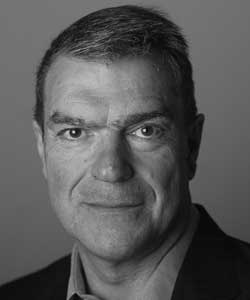 |
Clive COOKSON Clive Cookson leads a writing team at the Financial Times, covering science and technology, pharmaceuticals and biotechnology. He has worked in science journalism for the whole of his professional life. He left Oxford University in 1974 with a First Class Honours degree in chemistry. He joined the Times in 1981 as technology correspondent. In 1983 he moved to BBC Radio as science and medical correspondent. He joined his present newspaper, the Financial Times, as technology editor. He has also written about the chemical and pharmaceutical industries for the FT - and since 1991 he has been the paper's science editor. |
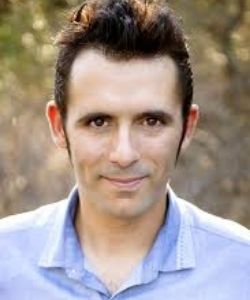 |
Bruno CORREIA Bruno Correia has a PhD in computational biology from the ITQB-Universidade Nova de Lisboa. He was first a research associate at the University of Washington under the supervision of William Schief and David Baker, where he was working on the development of computational flexible backbone design methodologies for immunogen design. He then moved to The Scripps Research Institute where he worked with Benjamin Cravatt on the development of whole-proteome small molecule fragment-based screening methods. He is currently Assistant Professor in Bioengineering (tenure track) at the Ecole Polytechnique Federale de Lausanne. Dr Correia received an ERC Starting grant in 2016 to design novel functional proteins for immunoengineering. His laboratory develops and applies protein computational methodologies to design novel functional and therapeutic proteins. |
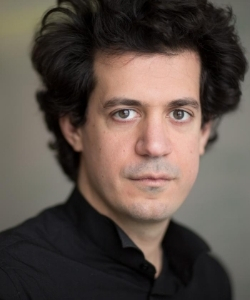 |
Constantinos DASKALAKIS Constantinos Daskalakis is a Professor of Computer Science at MIT, working on Computation Theory and its interface with Game Theory, Economics, Probability Theory, Machine Learning and Statistics. His work resolved long-standing problems about the computational complexity of Nash equilibrium, and multi-item auctions, and now focuses on high-dimensional statistics and learning from biased, dependent, and strategic data. He was honored by the International Mathematical Union with the prestigious Nevanlinna Prize. |
 |
Anna DAVIES Anna Davies is Professor of Geography, Environment and Society at Trinity College Dublin where she directs the Environmental Governance Research Group and is on the steering committee for the Trinity Centre for Future Cities. She chairs the Royal Irish Academy (RIA) Future Earth Ireland expert group, is a member of the RIA Geographical and Geosciences Committee and The Planning and Environment Research Group of the Royal Geographical Society, as well as being the Secretary of the European Roundtable on Sustainable Consumption and Production. In addition, she advises the Irish Government in her roles as an independent member of the National Economic and Social Council and as a member of the National Climate Change Council. She sits on the management board of the social enterprise The Rediscovery Centre, based in Ballymun, Dublin, a social enterprise dedicated to providing community employment and training via innovative reuse of unwanted or discarded materials. She has been awarded the ERC Public Engagement with Research Awards 2020 in the category Online and Social Media for her project SHARECITY. |
 |
Aletta Maria (Marileen) DOGTEROM Marileen Dogterom is a professor in bionanoscience at the Delft University of Technology (TU Delft), Netherlands. She has a pioneering track record in biophysical research of the microtubule cytoskeleton. Her group has systematically worked on increasing functional biological complexity in reconstitution experiments, which paved the way for her current and future ambition to build synthetic cells. Initially trained as a theoretical physicist, she moved abroad (Paris, France; Princeton and Bell Labs, USA) for graduate and postdoctoral training. In 1997, at the age of 29, she came back to the Netherlands as an experimental group leader at the AMOLF Institute in Amsterdam. In 2014, she moved to TU Delft to head the Bionanoscience Department (part of the Kavli Institute for Nanoscience). In 2018, she received the Spinoza award, the highest scientific distinction in the Netherlands. She holds an ERC Synergy Grant entitled “Building a Model Cell to Achieve Control of Cellular Organization”. |
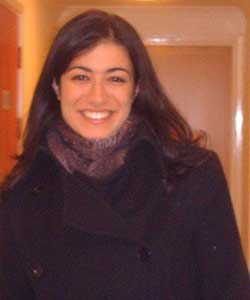 |
Nadia EL MJIYAD Nadia El Mjiyad works in the Scientific Department of the ERC Executive Agency (ERCEA). She has a PhD in Biology. Her scientific background is in Virology, Immunology and Cancer Research. She currently works on the ERC Synergy grant call for the Life Science oriented projects. |
 |
Dario FARINA Dario Farina has held positions as Full Professor at the Universities of Aalborg and Göttingen, and currently at Imperial College London. He is Fellow of the American Institute for Medical and Biological Engineering and of the European Alliance for Medical and Biological Engineering and Science. He is a pioneer in neural interfacing based on spinal motor neuron behaviour and is internationally recognised for his work on biosignal processing and neural control of movement. He was the recipient of the ERC Advanced and Proof-of-Concept grants called DEMODE and INTERSPINE respectively. His findings were successfully translated into industrial products, patents, and strategic partnerships with several companies. He was recently awarded the ERC Synergy grant NaturalBionicS together with Prof. Bicchi and Prof. Aszmann. |
 |
Giovanni FELICI Giovanni Felici graduated in Statistics at the University of Rome "La Sapienza". He was then awarded the Master of Science in Operations Research from the University of Lancaster, and the Ph.D. in Operations Research at "La Sapienza". He is Senior Researcher at the Italian National Research Council since 2000. Since November 2016 he is seconded to the European Research Council Executive Agency (ERCEA) in Bruxelles as Scientific Project Adviser for the Panels of Mathematics and Computer Science. |
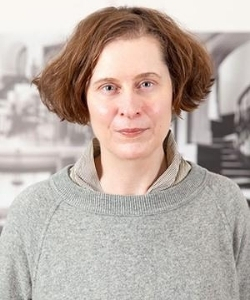 ©Moritz Wehrmann
©Moritz Wehrmann
|
Jennifer GABRYS Jennifer Gabrys is Chair in Media, Culture and Environment in the Department of Sociology at Cambridge University. She leads the Citizen Sense and Airkit projects, both funded by the European Research Council. In May 2020, she began a new ERC project, Smart Forests: Transforming Environments into Social-Political Technologies. Her books include How to Do Things with Sensors; Program Earth: Environmental Sensing Technology and the Making of a Computational Planet; and Digital Rubbish: A Natural History of Electronics. Her work can be found at citizensense.net and jennifergabrys.net. |
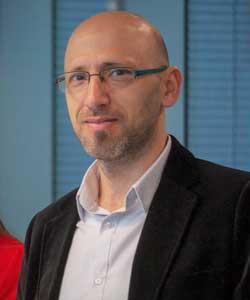 |
David GALLEGO-TORRES David Gallego-Torres obtained a Degree in Geology and a PhD in Earth Sciences from the University of Granada, Spain. He has a MSc from Imperial College London, UK. He was post-doctoral researcher at Utrecht University, the Netherlands, at CSIC and at the University of Jaen, Spain. He joined the ERC Executive Agency (ERCEA) in 2017, working for the Earth System Sciences and Universe Science panels. |
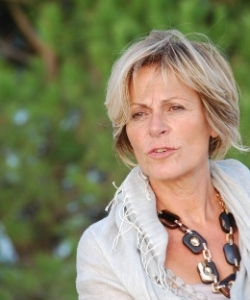 |
Fosca GIANNOTTI Fosca Giannotti is director of research of computer science at the Information Science and Technology Institute “A. Faedo” of the National Research Council, Pisa, Italy. She is a pioneering scientist in mobility data mining, social network analysis and privacy-preserving data mining and leads the Pisa KDD Lab - Knowledge Discovery and Data Mining Laboratory http://kdd.isti.cnr.it, a joint research initiative of the University of Pisa and ISTI-CNR. Her research focus is on social mining from big data: smart cities, human dynamics, social and economic networks, ethics and trust, diffusion of innovations. She is currently the coordinator of SoBigData, the European research infrastructure on Big Data Analytics and Social Mining http://www.sobigdata.eu, an ecosystem of 32 cutting edge European research centres providing an open platform for sharing interdisciplinary data and analytical methods for science and data-driven innovation. Recently she was awarded the ERC Advanced Grant XAI – Science and technology for the explanation of AI decision making. |
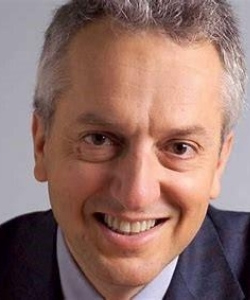 |
Domenico GIARDINI Domenico Giardini is professor of Seismology and Geodynamics at ETH Zurich. He studied in Bologna, worked at Harvard University and in Rome, and joined ETH in 1977. He directed the Swiss Seismological Service and presently the Swiss Competence Center for Energy Research. He delivered the control electronics for the seismometer on the NASA InSight mission. He is also contributor to studies on induced seismicity potential in energy technologies. He is one of the grantees of the ERC Synergy project FEAR. |
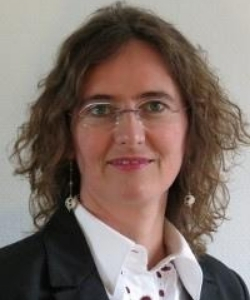 |
Cristina GRASSENI Cristina Grasseni is professor of Anthropology at Leiden University, the Netherlands. She trained in Philosophy, History and Philosophy of Science, and Social Anthropology with Visual Media at the universities of Pavia, Cambridge and Manchester respectively. Her ERC Consolidator grant Food citizens? Collective food procurement in European cities: solidarity and diversity, skills and scale (2017-2022) examines the different types, premises and consequences of collective forms of food production, distribution and consumption in three European cities. Her latest book, The Heritage Arena (2017) studies the politics of heritage food in the Italian Alps while the monograph Beyond Alternative Food Networks (2013) analyses Italy's solidarity economy networks as models of grassroots innovation for sustainability. |
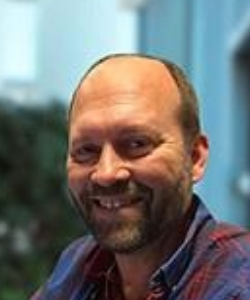 |
Marc-André GUTSCHER Marc-André Gutscher is a CNRS Senior Researcher, at IUEM Plouzané, working on seismicity and tectonics of subduction zones. He was one of the pioneers to investigate and explain the geodynamics of flat slab subduction. He was the first to identify an active subduction zone beneath Gibraltar and to explore the possible link to the Lisbon 1755 earthquake and tsunami, through modelling of tsunami propagation. Currently, his research focus on the use of underwater communication cables in earthquake warning system. The main primary offshore test site is in Sicily. He is the PI of the ERC project FOCUS. |
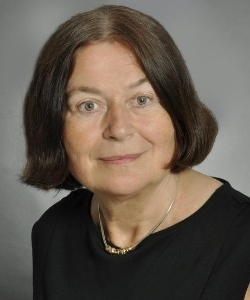 |
Jadranka GVOZDANOVIC Jadranka Gvozdanović is a linguistics professor at Heidelberg University and a gender expert. In both fields, her research focuses on change processes, on how and why change begins and which factors contribute to adoption of change or resistance to it. Concerning gender, she focuses on modification of structural factors involving all the levels of an institution, and the importance of communication. She holds leading positions in scholarly associations and is currently Chair of the LERU Group on Equality, Diversity and Inclusion. Within LERU, she contributed to position statements about gender equality and (co-)authored the following papers: “The European Research Area: Priorities for Research Universities (2011) http://www.leru.org /files/publications/LERU_AP9_ERA.pdf, “Women, research and universities: excellence without gender bias” (2012) http://www.leru.org/files/publications/LERU_Paper_Women_universities_and_research.pdf, “Implicit bias in academia: A challenge to the meritocratic principle and to women’s careers – and what to do about it” https://www.leru.org/publications /implicit-bias-in-academia-a-challenge-to-the-meritocratic-principle-and-to-womens-careers-and-what-to-do-about-it |
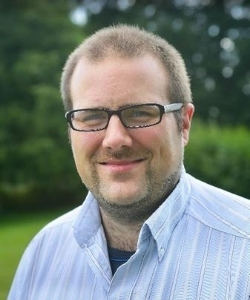 |
Ulrich KEYSER Ulrich Keyser is a professor at the Cavendish Laboratory, University of Cambridge, UK. His lab works on elucidating the physics of membrane transport, controlling molecules in nanopores, and mimicking and understanding protein channels. His experimental expertise is based on a combination of single molecule techniques, including nanopore sensing, DNA (origami) self-assembly, optical tweezers and microfluidics. His key invention of DNA origami nanopores has underpinned new work on the creation of ion channels from single DNA molecules mimicking natural ion channels with full control over all interaction forces. The remarkable simplicity of these DNA ion channels radically transforms our understanding of their physical interactions in lipid membranes, opening up a new field of bio-machinery with exciting applications in bottom-up assembly of living systems. He was awarded an ERC Starting Grant in 2010 entitled “Passive Membrane Transport of Organic Compounds” and currently holds an ERC Consolidator Grant entitled “Understanding and Designing Novel NanoPores”. |
 |
Antonia HAMILTON Antonia Hamilton is a Professor and leader of the Social Neuroscience group at the Institute of Cognitive Neuroscience, University College London. Her current research interests include how and why people imitate each other, how social skills differ in autism, and the neural mechanisms of social interaction. Her ERC project INTERACT examined how people with and without autism imitate and interact. |
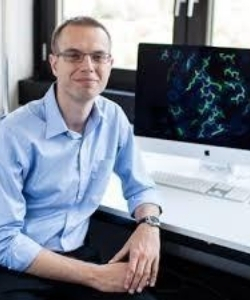 |
Martin JINEK After a PhD in the lab of Dr Elena Conti, Martin Jinek moved to the University of California in Berkeley to carry out pioneering work in the lab of Jennifer Doudna on the genome editor nuclease Cas9. He has received two ERC grants while at the University of Zurich. His Starting Grant allowed him to conduct structural and mechanistic studies of RNA-guided and RNA-targeting antiviral defence pathways. His Consolidator Grant goes from molecular mechanisms to next-generation molecular tools. |
 |
Angela LIBERATORE Angela Liberatore is Head of Unit for Social Sciences and Humanities at the European Research Council Executive Agency. Previously she worked in DG RTD at the European Commission. She participated in the work for the White Paper on European Governance of the European Commission. Her publications include 'Climate Change, Security and Peace: The Role of the EU'; ‘Balancing security and democracy. Biometric politics in the European Union'; 'Democratising Expertise, Expertising Democracy'; 'The Management of Uncertainty: Learning from Chernobyl'. She holds a PhD in Political and Social Sciences from the European University Institute. |
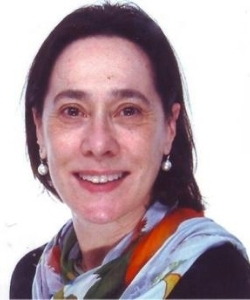 |
Anna G. MIGNANI Anna G. Mignani holds an MS in Physics and a PhD in Non-Destructive Testing. She joined the European Research Council Executive Agency (ERCEA) in 2016 as Seconded National Expert from the National Research Council of Italy (CNR). Her research activity at CNR as Research Director has been the design and implementation of sensors by means of photonic technologies and optical spectroscopy. At ERCEA, she works in the teams of "Systems and Communication Engineering" and "Condensed Matter Physics" panels. |
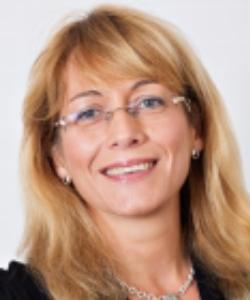 |
Oksana MONT Oksana Mont is a professor in sustainable consumption governance. She has a PhD in Technology, MSc in Environmental Management and Policy, and MSc in Biology and Chemistry. She conducts inter-disciplinary and international research on sustainable business models, sustainable consumption and lifestyles and sustainable consumption policy. The current topical domain is the sharing economy and circular economy. She leads a research group on Sustainable consumption governance at the International Institute for Industrial Environmental Economics at Lund University. She was awarded an ERC Consolidator grant for a project on urban sharing. |
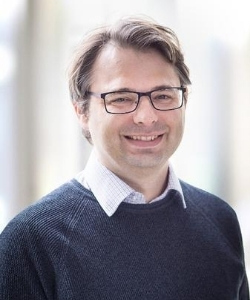 |
Hannes MUTSCHLER Hannes Mutschler received his MSc in Biophysics from the Humboldt University of Berlin, Germany. He completed his PhD on programmed bacterial cell death at the Max Planck Institute of Medical Research in Heidelberg, Germany. For his postdoctoral training in origins of life research, he joined the Protein and Nucleic Acid Chemistry Division lab at the MRC Laboratory of Molecular Biology in Cambridge, UK. In 2016, he became an independent research group leader at the Max Planck Institute of Biochemistry in Martinsried, Germany. His current research focuses on the emergence of early biological systems including protocells and the bottom-up assembly of semi-synthetic replicators. He has an ERC Starting Grant entitled “Resurrecting LUCA - Engineering of RNA-encoded Cellular Life Using Dual Evolution and Intergenomic Transplantation”. |
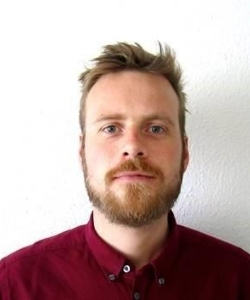 |
Mathias W. NIELSEN Mathias W. Nielsen is a sociologist by training and holds a PhD degree in social science. He wrote his PhD dissertation on New and Persistent Gender Inequalities in Danish Academia. His current research focuses on social stratification in science including the link between gender diversity and research outcomes. Nielsen recently ended a two-year stint as a postdoc in Gendered Innovations at Stanford University. He has published numerous papers on the topic of gender in science, including pieces in Nature, Nature Human Behaviour, PNAS and Research Policy. |
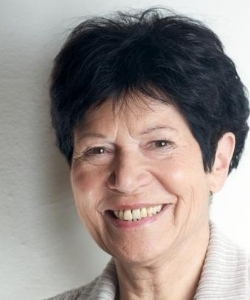 |
Helga NOWOTNY Helga Nowotny is Professor emerita of ETH Zurich and Former President of the European Research Council. She is currently Chair of the ERA Council Forum Austria, and Visiting Professor at Nanyang Technological University, Singapore. Her active engagement in scientific boards includes the Falling Walls Foundation (member of the board), Lindau Nobel Laureate meetings (Vice-President), Complexity Science Hub Vienna (Chair) and others. She has received numerous awards from scientific academies and universities in Europe and abroad, most recently an Honorary Doctorate from the University of Oxford and the Leibniz-Medal from the BBAW in Berlin. Her latest book publications are The Cunning of Uncertainty (2015) and An Orderly Mess (2017). |
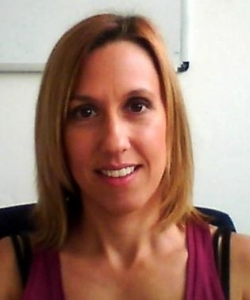 |
Mikaela POULYMENOPOULOU Mikaela Poulymenopoulou is a Scientific Officer in the Computer Science and Informatics panel of the Physical Sciences and Engineering Unit in the European Research Council Executive Agency (ERCEA). Before joining the ERCEA, she worked as scientific officer in the Joint Research Centre of European Commission. She has also worked as an adjunct lecturer and postdoctoral researcher at the University of Piraeus in Greece. She holds a BSc in Informatics and a PhD in Health Informatics from the same university. |
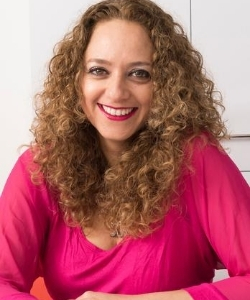 |
Vered PADLER-KARAVANI Vered Padler-Karavani is Assistant Professor at Tel Aviv University (IL). She received her PhD in biochemistry from Tel Aviv University, Israel. She then did her postdoctoral training with Prof. Ajit Varki at the University of California San Diego (UCSD), USA, and subsequently established the Laboratory for Glycoimmunology at Tel Aviv University, Faculty of Life Sciences, Department of Cell Research and Immunology. Her research combines glycobiology, immunology, bio-nanotechnology and cancer research, and involves cutting edge technologies within these disciplines. The research is currently focused on investigating how immune recognition of certain sugars contribute to cancer and heart diseases and in developing novel diagnostics and therapies for such diseases. Her ERC Starting Grant project aims to design a novel personalised cancer therapeutic approach based on xeno-autoantibodies against the dietary sugar antigen. The innovative interdisciplinary approach crosses the boundaries of cancer research, glycosciences, immunology and nanotechnology, with cutting-edge technologies. |
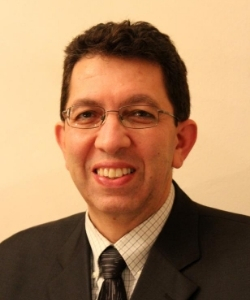 |
Marios POLYCARPOU Marios Polycarpou is a Professor of Electrical and Computer Engineering, the Director of the KIOS Research and Innovation Center of Excellence at the University of Cyprus, and a Member of the Cyprus Academy of Sciences, Letters, and Arts. His teaching and research interests are in intelligent systems and networks, fault diagnosis, computational intelligence and critical infrastructure systems. Prof. Polycarpou was the recipient of an ERC Advanced Grant (Fault-Adaptive) between 2012-2018. |
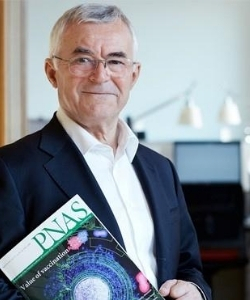 |
Rino RAPPUOLI Rino Rappuoli is Chief Scientist and Head External R&D at GSK Vaccines, based in Siena, Italy, and Professor of Vaccines Research, Imperial College, London. Prior positions were head of Vaccine R&D at Novartis, CSO of Chiron Corporation, and head for R&D at Sclavo. He earned his PhD in Biological Sciences at the University of Siena and was visiting scientist at Rockefeller University and Harvard Medical School. He has an ERC Advanced Grant: “Vaccines as a remedy for antimicrobial resistant bacterial infections.” He is elected member of US National Academy of Sciences (NAS), the European Molecular Biology Organization (EMBO), and the Royal Society of London. Awards received include the Paul Ehrlich and Ludwig Darmstaedter Prize, the Gold Medal by the Italian President, the Albert B Sabin Gold Medal, the Canada Gairdner International Award, the European Inventor Award for Lifetime Achievement, and the 2019 Robert Koch Award. He was nominated third most influential person worldwide in the field of vaccines (Terrapin). Dr. Rappuoli is the Founder of the GSK Vaccines Institute for Global Health (GVGH). |
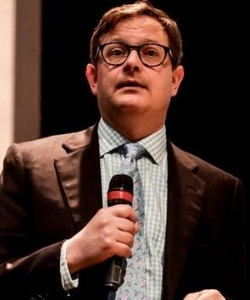 |
Jason REIFLER Jason Reifler is currently Professor of Political Science at the University of Exeter. He moved to Exeter in September 2013, and was previously on the faculty at Georgia State University (2007-2013) and Loyola University Chicago (2005-2007). His research has two main foci: 1) the misperceptions that citizens hold and how to debunk them, and 2) how and what citizens think about war and foreign policy. He is particularly known for his co-authored work with Brendan Nyhan on the “backfire effect." Prof Reifler received a BA from Colby College and a PhD from Duke University. Prior to grad school, he spent four years in Washington, DC working for the polling firm Bennett, Petts, and Blumenthal. |
|
Christopher REYNOLDS Dr Christopher Reynolds is Head of Sector at the Research Executive Agency in Brussels, Belgium. His Unit manages the MSCA Individual Fellowships which support hundreds of researchers across Europe every year. He holds a PhD from the Technical University of Munich, Germany, and an MA from the College of Europe in Bruges, Belgium. |
|
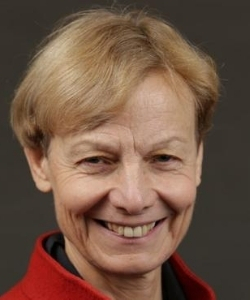 |
Barbara ROMANOWICZ Barbara Romanowicz is Chair of Physics of the Earth's Interior at Collège de France, Paris and Professor of Geophysics at the University of California, Berkley. Her research interests include the study of deep earth structure and dynamics using seismological tools, and recently, implementing numerical seismic wavefield computations in seismic tomography. She also has an interest in earthquake processes and scaling laws, the development of modern broadband seismic and geophysical observatories. Since 2016, she is member of the Scientific Council, the ERC's governing body. |
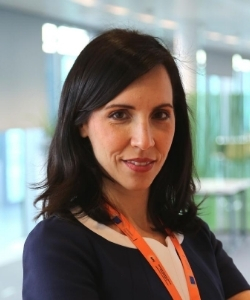 |
Klelia SALPEA Klelia Salpea obtained her university degree in biology from the National and Kapodistrian University of Athens in 2004 and worked as a research associate at the Onassis Cardiac Surgery Center in Athens. She moved to London in 2006 to work at the Centre for Cardiovascular Genetics, University College London (UCL), from where she obtained her PhD in medical genetics. In 2011, Klelia received an EU grant and joined the functional genomics laboratory at the Biomedical Sciences Research Center “Al. Fleming” in Athens. She moved to Brussels in 2017 to join the European Research Council Executive Agency, where she works since then as a Scientific Officer in the Life Sciences Unit. |
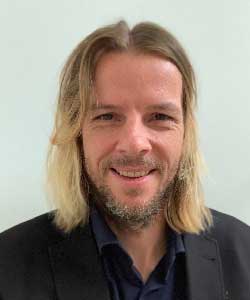 |
Björn W. SCHULLER Björn W. Schuller received his diploma, doctoral degree, habilitation, and Adjunct Teaching Professor in Machine Intelligence and Signal Processing all in EE/IT from TUM Munich, Germany. He is Full Professor of Artificial Intelligence and Head of GLAM at Imperial College London, UK, Full Professor and Chair of Embedded Intelligence for Health Care and Wellbeing at the University of Augsburg, Germany. He is co-founding CEO and current CSO of audEERING – an Audio Intelligence company based near Munich and in Berlin, Germany, and permanent Visiting Professor at HIT/China amongst other Professorships and Affiliations. Previous stays include Full Professor at the University of Passau/Germany and Researcher at Joanneum Research in Graz, Austria, and the CNRS-LIMSI in Orsay, France. He (co-)authored more than 900 publications (30k+ citations, h-index=83). His 30+ awards include having been honoured as one of 40 extraordinary scientists under the age of 40 by the WEF in 2015. He served as Coordinator/PI in 15+ European Projects, he is an ERC Starting Grantee, and consultant of companies such as Barclays, GN, Huawei, or Samsung. |
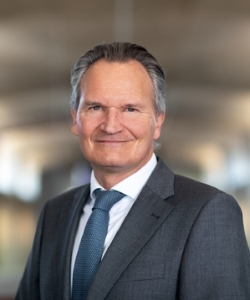 |
Robert-Jan SMITS Robert-Jan Smits is the President of the Eindhoven University of Technology. Prior to this, he was in 2018-2019 the Open Access Envoy of the European Commission, based at the European political Strategy Centre (EPSC) of the European Commission. In this capacity, he developed policy recommendations (Plan S) to ensure that all publicly funded scientific publications will be available in Open Access. Before this, he was from 2010 to 2018 the Director-General of DG Research and Innovation (RTD) at the European Commission. In this capacity, he was responsible for defining and implementing the EU policy and programmes in the field of research and innovation (average annual budget 8 billion euro). He has received several recognitions and awards for his contribution to European science and innovation. He is an honorary member of Academia Europaea and of the Koninklijke Hollandsche Maatschappij der Wetenschappen. He has degrees from Utrecht University in The Netherlands, Institut Universitaire d’Hautes Etudes Internationales in Switzerland and Fletcher School of Law & Diplomacy in the United States of America. |
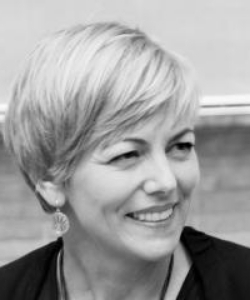 |
Christine STABELL BENN Christine Stabell Benn, MD, PhD, DMSc has worked at the Bandim Health Project in Guinea-Bissau (www.bandim.org) since 1993. She holds a position as Professor in Global Health at University of Southern Denmark. In 2009 she won an ERC Starting Grant for her project “CHILIC: Child health intervention interactions in low-income countries.” Her research focuses on health interventions and their effect on overall health in real life. Based to a large extent on work done in one of the world’s poorest countries, Guinea-Bissau, she has observed that vaccines and vitamins affect the immune system in much more general ways than previously thought. These health interventions also interact, and intriguingly, these interactions are often sex-differential. Her main contribution has been to take the observations on non-specific effects of vaccines and vitamins forward to randomised controlled trials, being the PI for many trials testing the overall health effects of vitamin A supplementation, BCG vaccine, oral polio vaccine and early measles vaccine. She also bridged to immunology, and explored the biological mechanisms underlying the non-specific effects of both vitamin A and vaccines. Lastly, she has taken the observations back to Denmark, to test in randomised trials and observational studies whether non-specific effects of vaccines are important in high-income settings as well. |
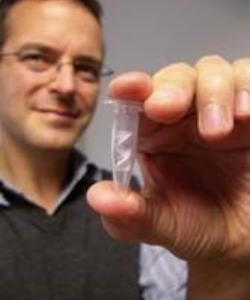 |
Mark SZCZELKUN Mark Szczelkun is Professor at the University of Bristol. He has established an international reputation for the study of DNA-protein interactions using biophysical methods. His group is working on the mechanistic analysis of DNA recognition and cleavage by prokaryotic defence systems such as Restriction-Modification and CRISPR-Cas. The group is now working on the “Molecular mechanisms, evolutionary impacts and applications of prokaryotic epigenetic-targeted immune systems’’ funded by an ERC Advanced grant. |
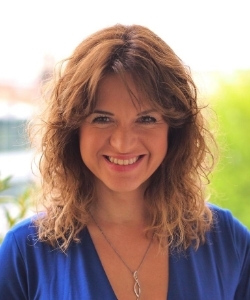 |
Iva TOLIC Iva Tolić started her career at the Ruđer Bošković Institute (RBI) in Zagreb, Croatia, where she obtained her PhD in Biology. Between 1999 and 2001 she did a PhD work in Harvard School of Public Health, in the USA. She also did consecutive post-docs in Denmark and Italy following her desire to master laser techniques for cutting inside cells. Between 2005 and 2015, Dr Tolić was Research Group Leader at the Max Planck Institute of Molecular Cell Biology and Genetics in Dresden, Germany. In 2014, with her ERC Consolidator Grant, she decided to move back to Croatia. |
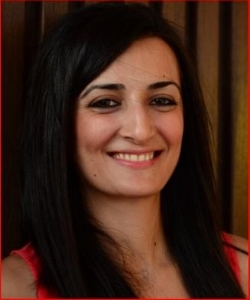 |
Konstantina TOPOURIDOU Konstantina Topouridou has been working as a scientific officer at the European Research Council (ERC) Executive Agency. She co-coordinates the LS1 Advanced ERC (Molecules of Life: Biological Mechanisms, Structures and Functions) and LS2 Consolidator ERC call (Integrative Biology: from Genes and Genomes to Systems) evaluation panels. She studied Biochemistry and Biotechnology, obtained a M.Sc. in Medical Research Methodology and accepted her PhD in Biochemistry and Cellular Biology. |
|
Giovanni TORRISI Giovanni Torrisi is a Scientific Officer in the Social Sciences and Humanities Unit at the European Research Council Executive Agency since 2016. He received a MA on legal sociology from the University of Bilbao, Spain, in 1997, a LL.M on European Law at the European Academy of Legal Theory in Bruxelles in 2000, and a Ph.D on legal sociology from the University of Milan in 2003. From 2003 to 2016, while researching in communication science and legal sociology in several EU projects along the years, he was teaching at Bocconi University, Milan, and at the University of Urbino both ICT for Economics and Urban Sociology. |
|
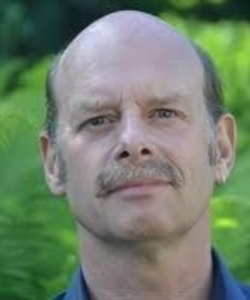 |
John VAN DER OOST John van der Oost is leader of the Bacterial Genetics group at Wageningen University, The Netherlands, where he is Professor. Over the last decade, he established a successful research line on prokaryotic anti-viral defence systems (CRISPR-Cas and Argonaute). He is considered a pioneer of the "CRISPR revolution" for his fundamental work on unravelling the mechanism of CRISPR-based immunity in bacteria. Since 2018, he has embarked on ‘The Quest of the Argonautes - from Myth to Reality’ with is ERC Advanced Grant. |
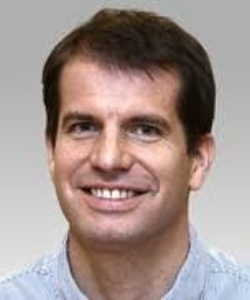 ©Radboudumc
©Radboudumc
|
Martijn VERDOES Martijn Verdoes is an Assistant Professor at the Department of Tumor Immunology and is affiliated with Bio-organic Chemistry at the Faculty of Science, Radboud University, The Netherlands. He obtained his Master’s degree in Chemistry in 2004 and his PhD degree in Organic Chemistry from Leiden University in 2008. His thesis work mainly focused on the design and synthesis of activity-based inhibitors and probes to study proteasome function. In 2009, he was awarded a NWO Rubicon Fellowship and he joined the lab of Matthew Bogyo at the Stanford School of Medicine, California, USA, where he designed and synthesized quenched activity-based probes (qABPs) for non-invasive imaging of cancer. Inspired by the observation that his qABPs got activated in specific immune cells in tumors, he joined the Tumor Immunology Department in the Radboud Institute for Molecular Life Sciences (RIMLS) in 2013. In 2015, he was awarded an ERC Starting Grant and an Institute of Chemical Immunology Tenure Track Fellowship. |
 |
Marie VIOLAY Marie Violay’ research aims at better understanding the role of fluids on the mechanics of the Earth’s crust, especially ruptures. She is interested in developing inter-disciplinary approaches that combine 1) rock mechanics, 2) microstructural investigations, and 3) geophysical observations to study earthquakes, and geological reservoirs. Since July 2015, she is assistant professor at EPFL (CH) and is currently ERC starting investigator in mechanical BEhavior of Fluid Induced Earthquake (BEFINE). |
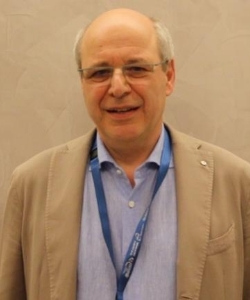 |
Fabio ZWIRNER Fabio Zwirner is Professor of Theoretical Physics, Department of Physics and Astronomy “G. Galilei” at the University of Padua and currently Vice-President of the ERC Scientific Council. He was Chairman of the CERN Scientific Policy Committee (2011-13) and of the High Energy Particle Physics Board of the European Physical Society (2009-11), and one of the four members of the Strategy Secretariat for the update of the European Strategy in Particle Physics (2012-13). Representing the Italian government, he chairs the Steering Committee of the International Centre for Theoretical Physics (ICTP) in Trieste, and he is a member of the Board of Directors of Scuola Galileiana, the Excellence School of the University of Padua. He was Divisional Associate Editor of Physical Review Letters (2002-8) and he is currently Editor of the Journal of High Energy Physics (JHEP). His research has mostly dealt with the theory and phenomenology of the fundamental interactions, focusing on the mass generation for the weak gauge bosons, the quarks and the leptons, and the possible unification of gravity with the other forces at the quantum level. His main contributions concern the physics of electroweak interactions and of the Higgs boson, the properties of supersymmetric extensions of the Standard Model of particle physics, the theory of supersymmetry breaking, the compactifications of supergravity and superstring theories. |

